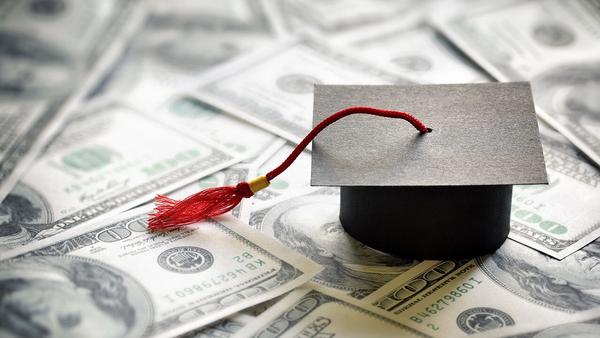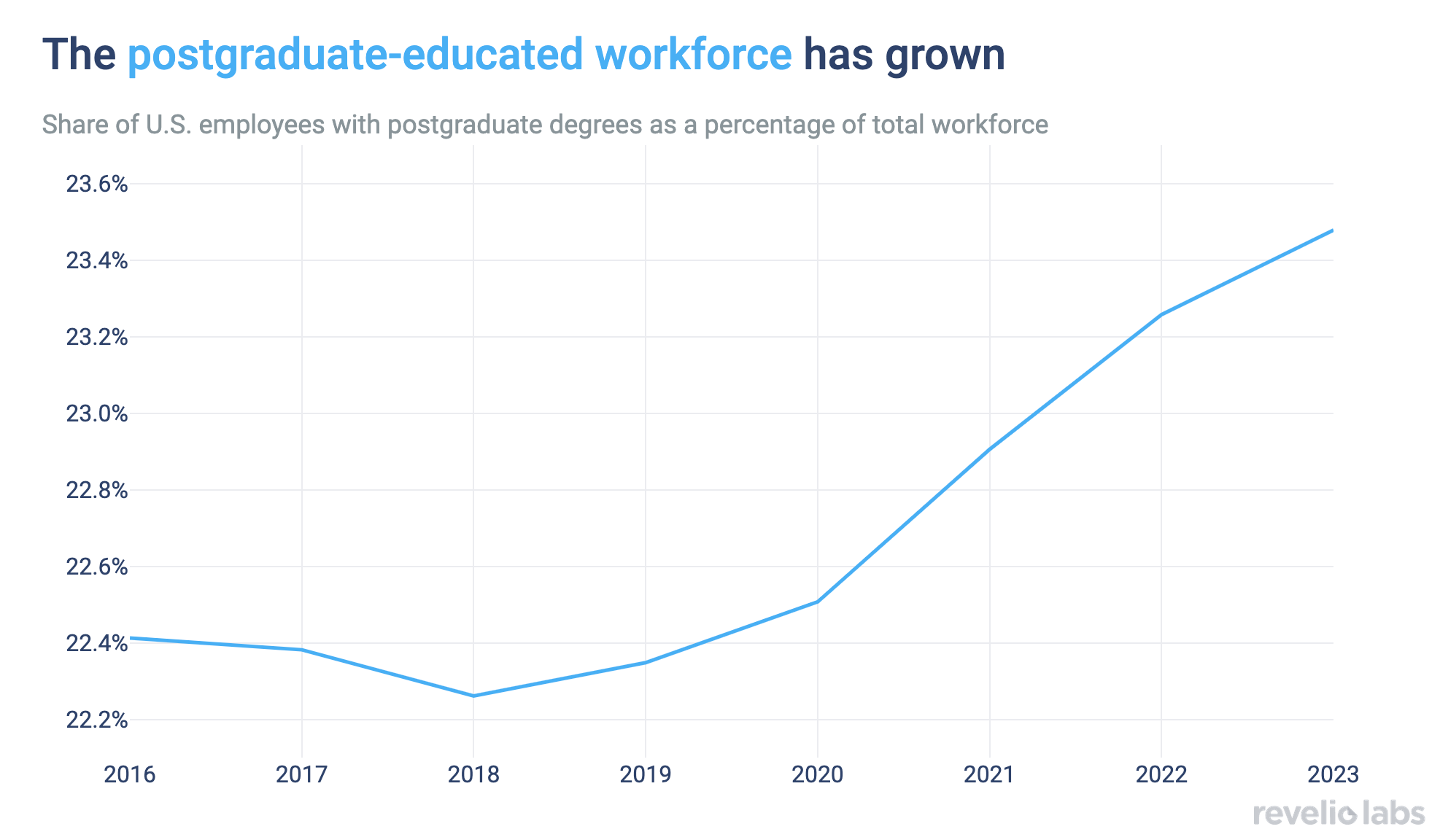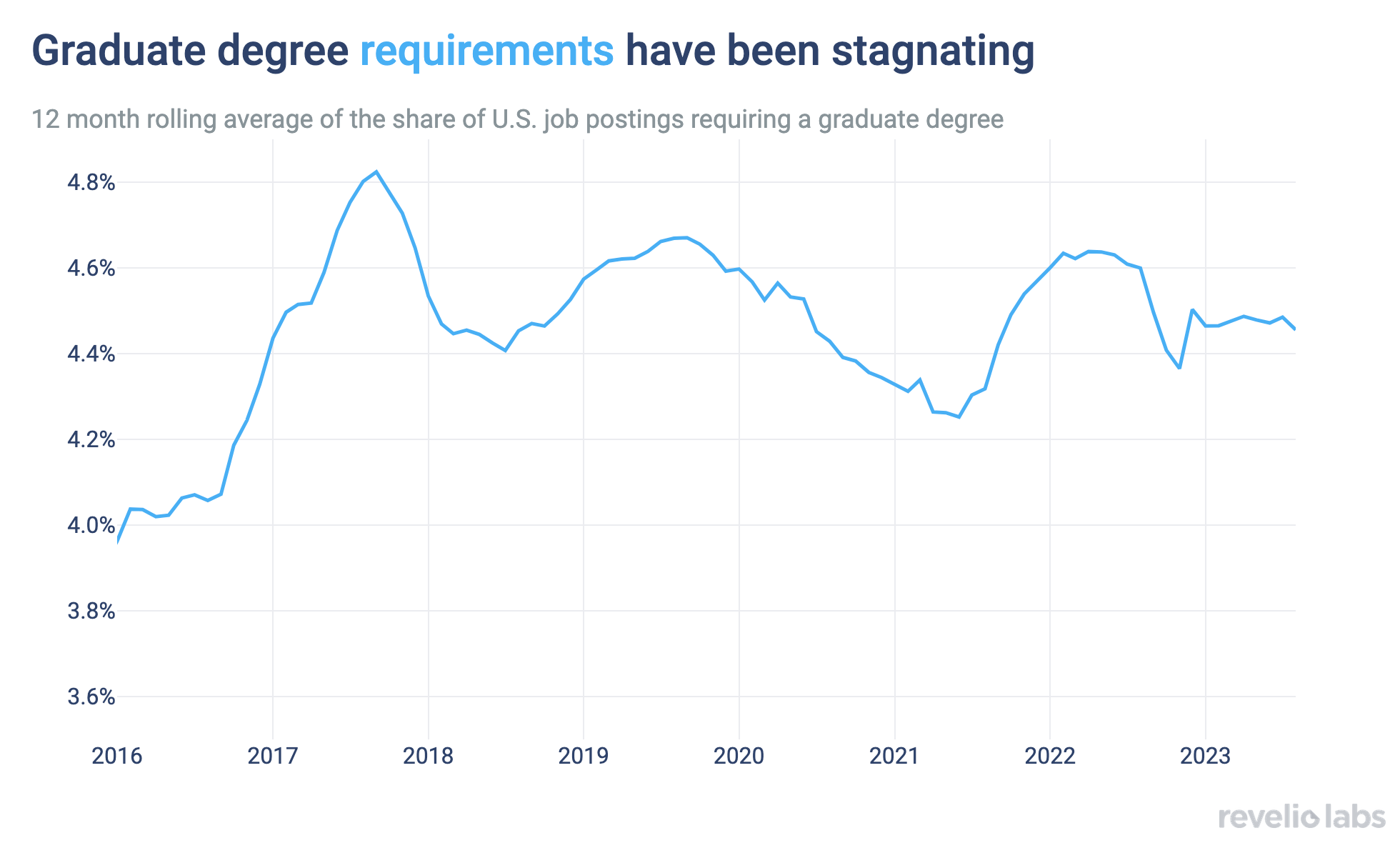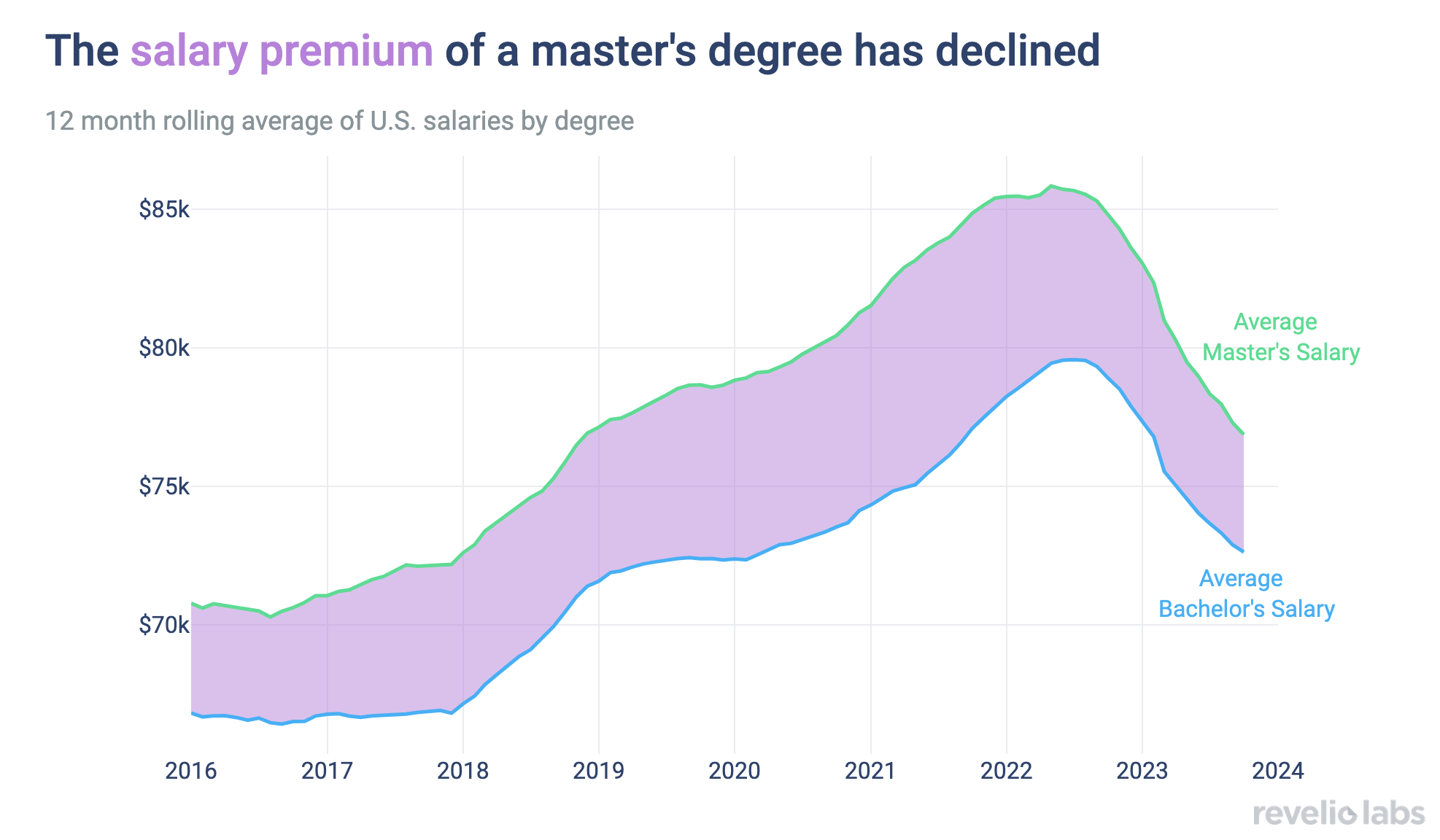Is Grad School Still Worth It?
It might take 25 years for that graduate degree to pay off

The number of employees with graduate degrees has seen a steady rise since the pandemic.
Remarkably, this surge in advanced education doesn't correlate with a simultaneous increase in job postings that require graduate degrees, pointing to a notable imbalance.
The salary premium associated with having a Master’s degree has declined, making it harder to justify the ever-increasing tuition costs.
Is the pursuit of a graduate degree still a sound investment in the face of soaring tuition costs? Even though graduate borrowers constitute only 21 percent of all higher education borrowers, they receive nearly half of the $80 billion in federal student loan disbursements. In Revelio Labs' recent collaboration with Bloomberg, we analyzed trends in graduate enrollment and their labor market outcomes.
Enrollment in postgraduate programs has surged, resulting in a substantial increase in the number of professionals with graduate degrees. Today, one in five US workers holds a graduate degree.


However, when looking at the demand side, we uncover an interesting trend: While the number of employees with graduate degrees has increased, the number of job postings requiring graduate degrees has stagnated over the past five years, our data show. Echoing our previous newsletter, this trend might reflect that companies are shifting their hiring focus toward specific skills rather than broad degree requirements. This shift may potentially diminish the premium traditionally associated with having a degree in terms of salary expectations in the jobs market.


Sign up for our newsletter
Our weekly data driven newsletter provides in-depth analysis of workforce trends and news, delivered straight to your inbox!
Indeed, while tuition continued to rise, the salary premium, which represents the wage difference between master's and bachelor's degree holders, has remained relatively stable, with a slight decrease since the pandemic.
Let's perform a quick calculation: On average, students borrow $60,000 in loans. If they do not work during their studies, they give up approximately $70,000 per year they are in school which they could have made working with a bachelor's degree. Consequently, if they are in a master’s program for two years, the true cost of the degree amounts to around $200,000. As depicted in the chart below, the salary premium is less than $8,000, on average. Therefore, even without factoring in interest rates, it would take more than 25 years (200/8) to recover this investment.


Of course, the value of education extends beyond mere salary gains. Pursuing a graduate degree can be a deeply rewarding and fulfilling experience, helping individuals explore their passions and interests. That said, if your primary objective in attending graduate school is to enhance your earning potential, it's crucial to make informed choices and invest in programs that impart skills and knowledge that are in demand in the jobs market.

